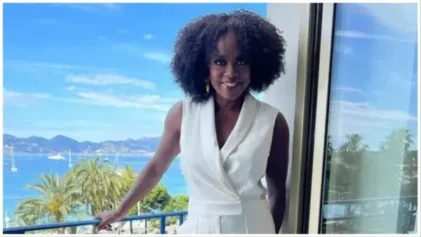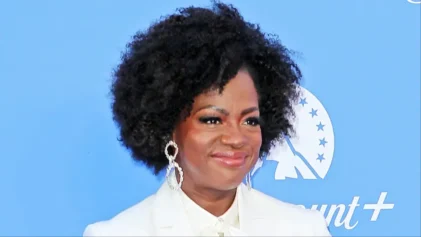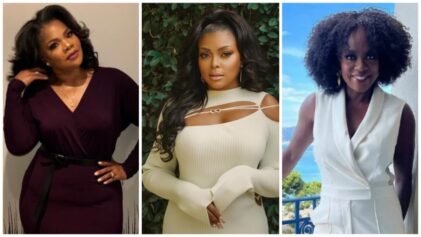Viola Davis recently revealed that early in her acting career she feared being passed over for specific roles because she was seen as “too big” and “too Black.”
The actress shared this admission during an Oct. 10 interview with The Guardian as she promoted her film, “Woman King.”
Davis, who has been in the entertainment industry for over 30 years, recounted a time when she felt that she did not belong, which occurred when she attended New York’s prestigious performing arts school, Juilliard.
The 57-year-old said, “I felt I came in with a wrong palette. I was too big. I was too Black. My voice was too deep.” Despite the fears, Davis credited Juilliard for helping her understand the meaning of art after being given an opportunity to go to Africa in the 1990s.
While in the Gambia, Davis explained that after watching a performance by the Kañeleng, a term often associated with women who can’t bear children, she could accept who she is as a person and an actress.
The “Fences” star said, “They were just screaming, not even with any objective of singing beautifully. It was the objective of just making noise, so God can hear it. If I don’t start with the palette of what is Viola, then I’m doing absolutely nothing. Whether or not it’s received by the masses, I cannot control. But I can control that.”
Also, in the interview, Davis opened up about how she feels it is her duty to switch the narrative of how dark-skinned women are viewed in films and shows.
She said, “What is in my power to change is to show people that we are more than the stamp that people have put on dark-skinned women. That we are sexual, that we are desirable, that we can be smart, that we are way more expansive and our identity is not determined by your gaze. I can change that. I can change the way Black women are seen, to some extent, within the industry.”
As Davis’ comments circulated online, many praised her for speaking up about her struggles and overcoming them.
“And she has changed the way black women are seen…I was inspired to become a lawyer because of Her I love her…she represents so much power and is an elite actress”
“Well she showed them I love her as an actress I’ve always have! She definitely deserves her flowers.”
“So happy she is speaking up!”
“Now look at this queen. One of the best actors in Hollywood.”
“So glad she’s speaking out about this cause some darkskin women will act like because they picked and elevated colorism just doesn’t exist.”


